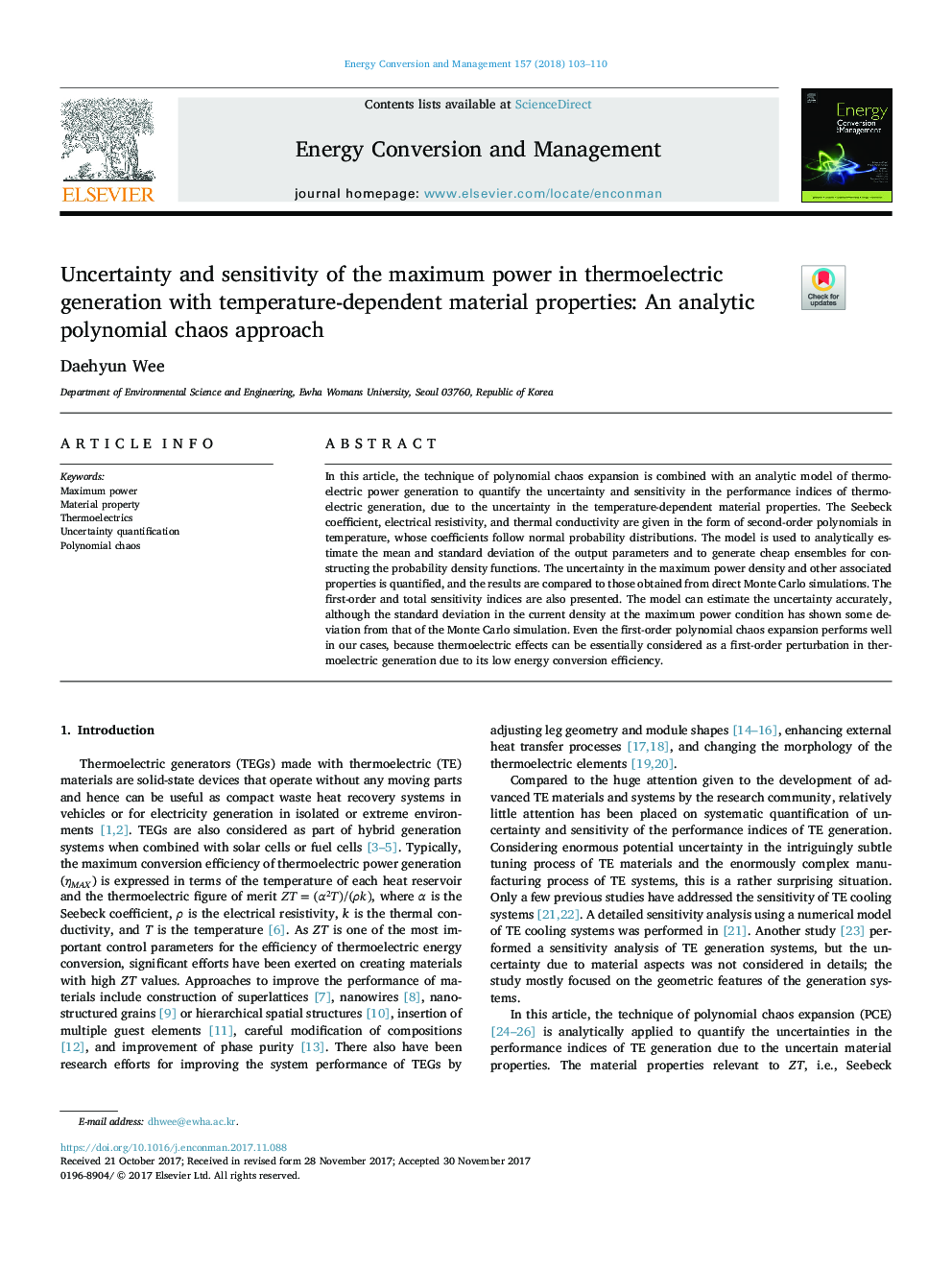| Article ID | Journal | Published Year | Pages | File Type |
|---|---|---|---|---|
| 7159342 | Energy Conversion and Management | 2018 | 8 Pages |
Abstract
In this article, the technique of polynomial chaos expansion is combined with an analytic model of thermoelectric power generation to quantify the uncertainty and sensitivity in the performance indices of thermoelectric generation, due to the uncertainty in the temperature-dependent material properties. The Seebeck coefficient, electrical resistivity, and thermal conductivity are given in the form of second-order polynomials in temperature, whose coefficients follow normal probability distributions. The model is used to analytically estimate the mean and standard deviation of the output parameters and to generate cheap ensembles for constructing the probability density functions. The uncertainty in the maximum power density and other associated properties is quantified, and the results are compared to those obtained from direct Monte Carlo simulations. The first-order and total sensitivity indices are also presented. The model can estimate the uncertainty accurately, although the standard deviation in the current density at the maximum power condition has shown some deviation from that of the Monte Carlo simulation. Even the first-order polynomial chaos expansion performs well in our cases, because thermoelectric effects can be essentially considered as a first-order perturbation in thermoelectric generation due to its low energy conversion efficiency.
Related Topics
Physical Sciences and Engineering
Energy
Energy (General)
Authors
Daehyun Wee,
